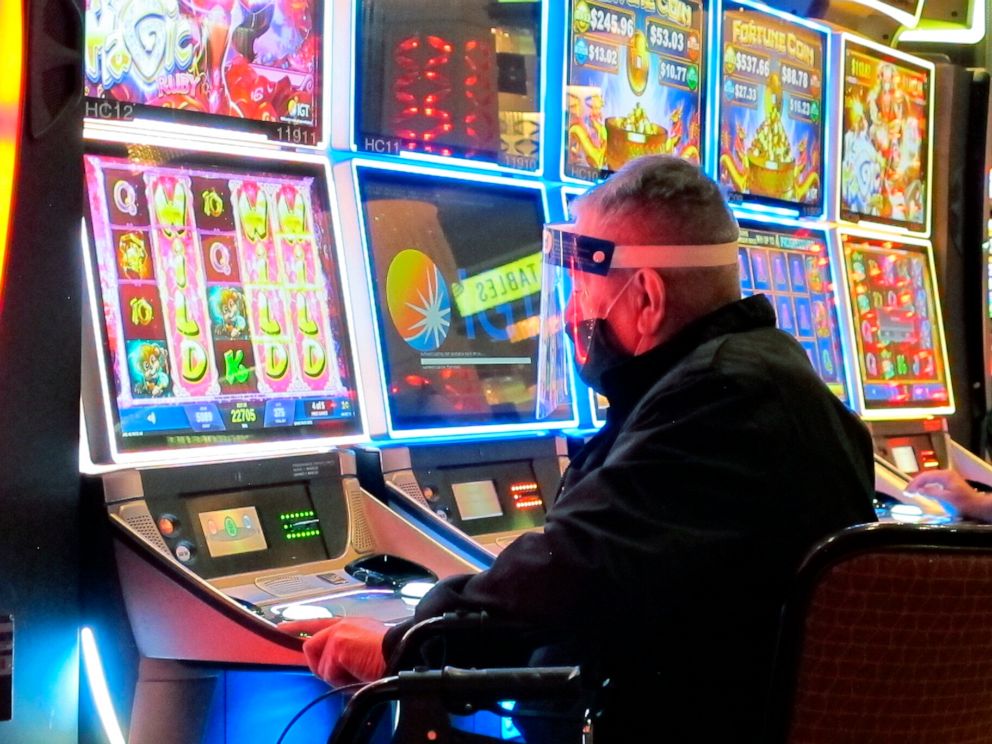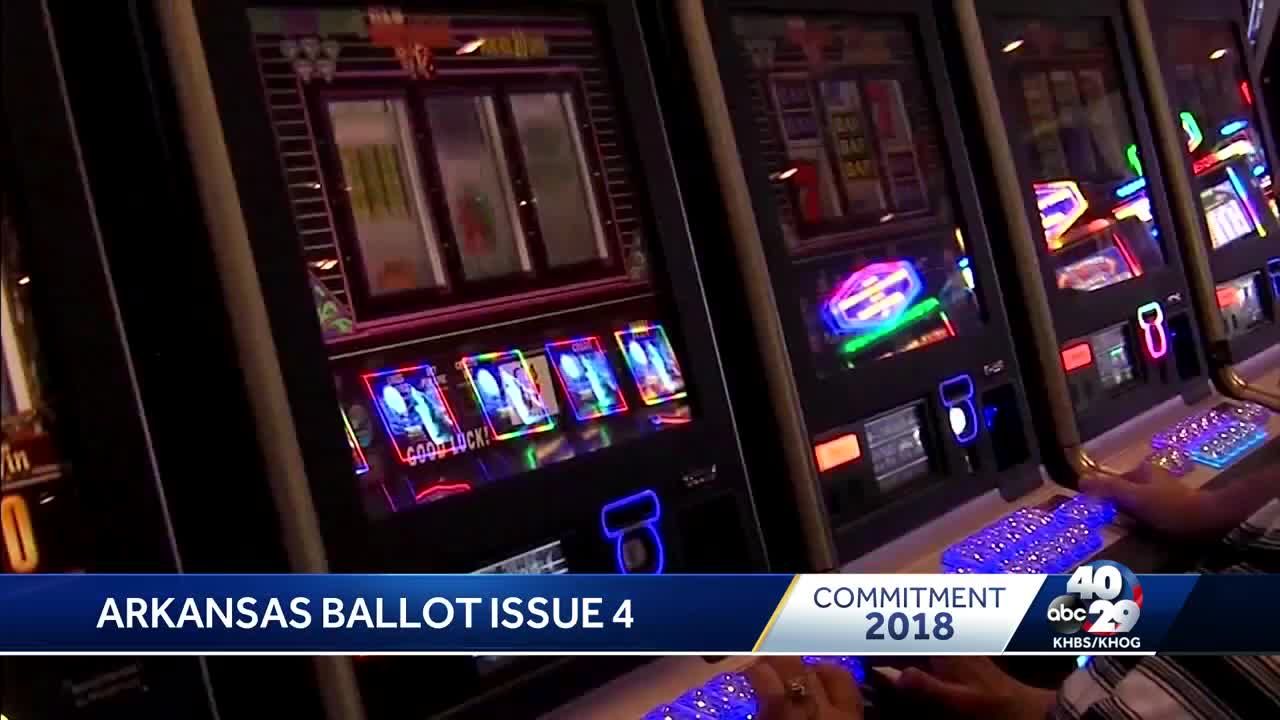Casino Bill In Arkansas

Senate Bill 669, also known by the more palatable name of the Athletic Event Wagering Bill 2019, has officially hit a seemingly insurmountable wall and failed to become law. The bill sponsored by Democratic senator Will Bond, had it actually come to pass, would have legalized sports betting through online platforms in Arkansas, expanding the now growing gambling industry in said state and loosening some of the well-known restrictions that exist in the American casino industry.
Athletic Event Wagering Bill 2019
Arkansas and gambling have had a tumultuous relationship in the past, with the state being seen in the past as a potential location for gaming and gambling facilities that could rival even those in the gambling capitals of the United States of America and, therefore, the world. However, gambling was initially banned in Arkansas, squandering said potential, and progress towards rectifying this has been a tad slow.
Arkansas Senator Tom Cotton has quietly introduced a new bill that would prohibit financial institutions from processing online gambling transactions to the US Senate on 21 st of September. The bill is co-sponsored by Senator Lindsey Graham (R-S.C.) and Mike Lee (R-Utah). Arkansas, meanwhile, has cut the casino gambling tax. Amendment 100, in addition to allowing the establishment of new casinos in Jefferson and Pople Counties, dramatically cut taxes on. River valley casino resort - russellville, ar $254 million investment and the creation of more than 1,500 jobs ($60.5 million payroll) within the community. Gulfside Casino Partnership has proven itself as a strong community partner and will do the same in Pope County. Gambling in Arkansas Casinos were prohibited in Arkansas in 2016. Issue 5 would have authorized three casinos in the state. Voters rejected previous attempts to establish casinos. Arkansas sb498 2019 sb498 - to amend the provisions of the arkansas casino gaming amendment of 2018; amending arkansas constitution, amendment 100; and to declare an emergency.
Live gambling in Arkansas, however, has since become legal thanks to a recent referendum, with locales like The Oaklawn Racing & Gaming casino in Garland County and the Southland Gaming and Racing casino in Crittenden County now operating legally. Additionally, activities such as raffle and bingo are currently permitted in Arkansas, and so are race tracks and a state lottery.
The bill, nonetheless, aimed to provide the southern state with an edge regarding online gambling, going beyond brick and mortar casinos and being one of the few leading the charge in this new enterprise in the gambling world (an advantage presently limited to New Jersey, Pennsylvania, and West Virginia).
Exploring the fundamental details of the bill, you would find that the document in question was described more specifically as: “An act permitting licensed on-site and electronic wagering on athletic events by certain entities”. Reading further into the bill, the exact definition it provides on what constitutes an “athletic event” may undoubtedly be quite interesting to the reader.
Wagering on games, contents and other activities performed by many reputable professional sports entities, like the NFL, the NBA and the NHL (along with many others) would have been allowed under this new law, and so would have been activities sanctioned by specific smaller amateur organizations. On the other end of the spectrum, sporting events sanctioned by the professional wrestling company World Wrestling Entertainment and by the Special Olympics would have been expressly not considered athletic events, and therefore, would not have been applicable for online wagers and bets.
Reasons for Its Failure

The Athletic Event Wagering Bill 2019 would have, in theory, stopped sports wagers in the black market, as players would have had no need to reach out to these illegal circles with an easier and legal alternative. Why, then, did this bill fail to be approved the Senate? The answer is actually quite simple: the existence of integrity fees.
Integrity fees are commissions, or taxes for the more cynical among us, that sports betting operators would have to pay to sports governing bodies in order to conduct their business, popularized by organizations like the previously mentioned National Basketball Association and Major League Baseball, their largest proponents.

Said governing organizations often demand legislation to include these fees and justify them by stating that said cost is necessary to maintain sports betting as transparent, fair and free of corruption as possible. These fees have been standard practice in other countries already, and they seem to be here to stay in the US.
Casino Bill In Arkansas Map
Regarding the particular case Senate Bill 669, sports betting operators would have had to invest a rate of 1% of their income on said integrity fees, and combining these with both the state taxation of 12.5% of offline sports betting, and the 13.5% of taxation of betting of the online variety doomed this bill to be quite certainly dead on arrival.
In essence, lawmakers believed that all these fees and taxes would irrevocably make the bill considerably unpopular with betting operators and, furthermore, drive the public towards the more attractive black market that they had originally intended to help bettors avoid. SB 669 has then been rejected without a specific date of being reconsidered for legislation, if any.
Senate Bill 669, also known by the more palatable name of the Athletic Event Wagering Bill 2019, has officially hit a seemingly insurmountable wall and failed to become law. The bill sponsored by Democratic senator Will Bond, had it actually come to pass, would have legalized sports betting through online platforms in Arkansas, expanding the now growing gambling industry in said state and loosening some of the well-known restrictions that exist in the American casino industry.
Athletic Event Wagering Bill 2019
Arkansas and gambling have had a tumultuous relationship in the past, with the state being seen in the past as a potential location for gaming and gambling facilities that could rival even those in the gambling capitals of the United States of America and, therefore, the world. However, gambling was initially banned in Arkansas, squandering said potential, and progress towards rectifying this has been a tad slow.
Live gambling in Arkansas, however, has since become legal thanks to a recent referendum, with locales like The Oaklawn Racing & Gaming casino in Garland County and the Southland Gaming and Racing casino in Crittenden County now operating legally. Additionally, activities such as raffle and bingo are currently permitted in Arkansas, and so are race tracks and a state lottery.
Casino Bill In Arkansas Zip
The bill, nonetheless, aimed to provide the southern state with an edge regarding online gambling, going beyond brick and mortar casinos and being one of the few leading the charge in this new enterprise in the gambling world (an advantage presently limited to New Jersey, Pennsylvania, and West Virginia).

Exploring the fundamental details of the bill, you would find that the document in question was described more specifically as: “An act permitting licensed on-site and electronic wagering on athletic events by certain entities”. Reading further into the bill, the exact definition it provides on what constitutes an “athletic event” may undoubtedly be quite interesting to the reader.
Wagering on games, contents and other activities performed by many reputable professional sports entities, like the NFL, the NBA and the NHL (along with many others) would have been allowed under this new law, and so would have been activities sanctioned by specific smaller amateur organizations. On the other end of the spectrum, sporting events sanctioned by the professional wrestling company World Wrestling Entertainment and by the Special Olympics would have been expressly not considered athletic events, and therefore, would not have been applicable for online wagers and bets.
Reasons for Its Failure
Casino Bill In Arkansas
The Athletic Event Wagering Bill 2019 would have, in theory, stopped sports wagers in the black market, as players would have had no need to reach out to these illegal circles with an easier and legal alternative. Why, then, did this bill fail to be approved the Senate? The answer is actually quite simple: the existence of integrity fees.
Integrity fees are commissions, or taxes for the more cynical among us, that sports betting operators would have to pay to sports governing bodies in order to conduct their business, popularized by organizations like the previously mentioned National Basketball Association and Major League Baseball, their largest proponents.
Said governing organizations often demand legislation to include these fees and justify them by stating that said cost is necessary to maintain sports betting as transparent, fair and free of corruption as possible. These fees have been standard practice in other countries already, and they seem to be here to stay in the US.
Regarding the particular case Senate Bill 669, sports betting operators would have had to invest a rate of 1% of their income on said integrity fees, and combining these with both the state taxation of 12.5% of offline sports betting, and the 13.5% of taxation of betting of the online variety doomed this bill to be quite certainly dead on arrival.

In essence, lawmakers believed that all these fees and taxes would irrevocably make the bill considerably unpopular with betting operators and, furthermore, drive the public towards the more attractive black market that they had originally intended to help bettors avoid. SB 669 has then been rejected without a specific date of being reconsidered for legislation, if any.